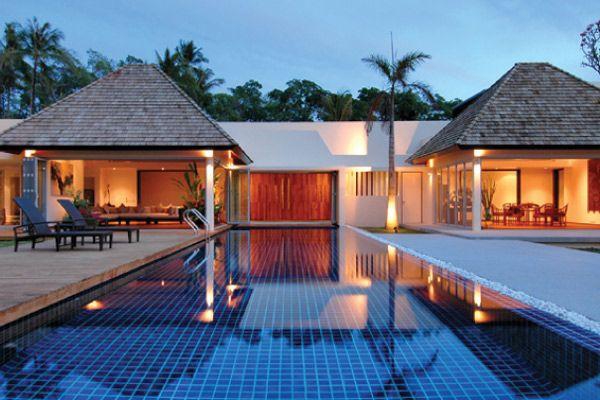Thailand is a very popular destination and this tropical paradise hosts countless numbers of tourists every year. Business tourists can enjoy the warmth and charm of cities like Bangkok and Pattaya. Phuket is also quite famous. It can be a low-cost budget destination for back-packers. Families will also be able to enjoy the different sights and views this nation has to offer. The place is an entire package in itself with something in it for everybody.
Thai food is just great, the Thai people are friendly, welcoming, and polite. Infact, a lot of people who visit this nation feel like wanting to return back for another trip. Some of these tourists even want to invest in real estate in this emerging market(those seeking a better return on their capital) as they want a piece of this tropical sunshine for themselves. It could be budding entrepreneurs, families, or even those thinking of retiring.
While foriegn investment is encouraged and welcome for the most part, there are certain laws and strict regulations that dictate what exactly can be owned and the way transactions can be structured. In terms of Real Estate, it’s imperative to have a fairly good understanding of the local laws that govern ownership along with the types of Real Estate that are available for purchase. A foreign national may not be able to buy land in Thailand because this could drive up the prices due to speculative fervour and first time buyers who are Thai residents will not be able to afford to purchase the land. Thai real estate can be broadly classified into the following three categories: Condominiums, Villas and Houses, and Undeveloped land.
The easiest and hassle free way for a foreigner to own a property is to buy a freehold condominium. But there is a catch, under Thai law only 49% of the condominium’s unit area can be owned by the foreign national. The other 51% must be Thai owned. The land on which the property will be built upon will have to be Thai owned. One can also invest in something known as a condo-hotel which has the features of both a hotel and condo combined into one. The 51% Thai -49 % foreign law still applies in this case as well.
Luxury properties
Luxury properties which fall under the purview of branded residences also have the 51%Thai – 49% foreign ownership dynamics. A condo can also be purchased via an Offshore Company, this will help in succession and inheritance planning because the person who controls the shares of the company owns the condo. Those fortunate to have highly trustworthy Thai friends can transfer the money to this person who will in turn purchase a villa under their name.
An agreement between the foreigner and the Thai friend can be made stating that the foreigner owns 49% and the Thai national owns 51%. The name on the title deed will be that of the Thai national. The Thai national friend has the rights to lease, sell, or dispose without the consent of the foreign national. The foreigner can legally secure the use of the property for a period of 30 years via leasing the building from his Thai friend.
Landed property
Landed property is pretty much plots of rock and soil on which building structures can be constructed. Thailand with its strict laws forbid foreign ownership of land unless under very special circumstances. Villas can also be purchased via setting up a Thai company. It should be a legitimate business with genuine Thai shareholders as nominee shareholders are illegal in Thailand. This business should be generating revenues. The Thai investors should have a say in running the company and should be legitimate investors. The foreigner will only be eligible to own 49% of the shares. It is best to consult an experienced Thai lawyer who will be able to guide in this matter.
There is also something known as a leasehold where an actual owner who is a freeholder of a property is renting out a property to a foreign national on a long term basis. This lease can only be upto a term period of 30 years. The foreign national who is the lessee has possession and can use this property for the purpose of rentals or as a home. A foreign national can lease the land for a period of 30 years but own the building. This lease can be taken out from an individual or a company.
Secured Lease
Collective or protected is also something a foreign national can look into. The way this works is as follows – tenants will agree to commit to a lease while signing a sale and purchase agreement simultaneously with the Thai company of the developer. Guaranteed lease renewals cannot be promised.
LESSOR → LESEE→ OFFSHORE COMPANY
In case a foreign national married a Thai national(wife). The foreign spouse will not be given permission to own or co-own the land with the Thai spouse. A couple can buy the land in the name of the Thai spouse. A joint declaration must be made by the couple showing that the funds of the Thai wife was used for the purchase. While selling or mortgage of the property, the Thai wife may not need the consent of the husband. She can lease it to her husband for a period of 30 years as one of the ways to solidify this joint ownership. The foreign national husband will have rights to the building for 30 years even if the wife decides to sell the land.
There are those rare circumstances when foreign ownership may be allowed. Those foreign nationals who have the resources, there is an avenue for ownership foreign freehold land under Thailand’s Land Code Act. A prescribed investment of a minimum of THB 40 million i.e. 1.25 million USD may own land of up to 1.25 Rai (1600 square meters). This investment should be in a state enterprise, Bank of Thailand, government of Thailand. The ministry of finance must secure the capital or interest of the bonds.
The Board of Investment
Any foreign national who is investing or promoting a business in Thailand will be able to gain specific privileges such as the permission to own land. A business has incentives under the Investment Promotion Act but an individual does not have the same kind of incentives. Under the Board of Investment scheme, an individual has control over the Thai business. If a foreign national can control the company, they can also control any of the properties or land owned by the company.









